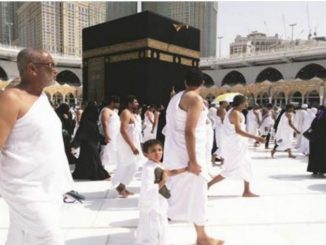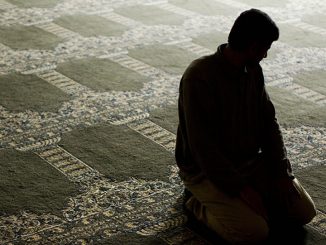
Redemption of #Ramadan (Al-Qada)
The groups who are permitted to break #fast due to the reasons
mentioned should redeem the day(s) they missed after Rama-
dan. Allah (SWT) states:
“The prescribed number (should be made up)
from days later.”
(Al-Qur’an 2:185)
If he breaks the whole month, the whole month should be re-
deemed. If the month is 30 days, 30 days are due on him. If the
month is 29 days, 29 days are due.
Technically, the time period of redemption is the whole year
before next #Ramadan. If he missed ten days, the redemption is
due ten days before next Ramadan. However, it is preferred to
redeem as soon as the obstacle is removed, because it is better
to meet the obligation and free yourself from the responsibility
without delay known as Ibraudh-Dhimmah.
It should not be delayed until next Ramadan without any good
reason. The #Prophet’s wife ‘Aishah has been reported as say-
ing,
“Sometime when I miss some days of Ramadan, I would
not be able to redeem them except in the month of
Sha’aban.”
The narrator of the Hadith, Yahya, added:
“She was busy serving the Messenger of Allah (saas).”
(Bukhari and Muslim)
Delaying to the next Ramadan may lead to piling up fasts
which may be difficult for him to make up, or he may die in the
mean time. If he died before making it up, there will be no
blame on him because #Allah gave him allowance to make up
missed fasts. But if he is able but neglected it, his next of kin
should redeem on his behalf.
The Prophet (saas) said:
“Whoever dies before redeeming his missed fast, his
next of kin should redeem it for him.” (Bkhari/#Muslim)
Indeed, a group of relatives can redeem it for him, each fasting
a certain amount of days until the qada is complete. If there is
no next of kin, or there is one who does not wish to fast on his
behalf, his guardian ( Wall) can redeem it by feeding people in-
stead of fasting.
The proof for this case is two things: analogy (al-Qiyaas) and
#Sunnah. The fear of the elderly person of fasting, in that it may
endanger his life, is similar to the case of pregnant and nursing
women. Some said the same text cited as a proof for permitting
the elderly to break fast and feed poor people can be cited here
too, because the verse is general.
In a #Hadith reported by Anas Bin Malik Alka’aby (raa), the
Messenger of Allah (saas) said:
“Allah permitted the sojourner to break fast (and make
it up), and his Salat is cut in half. Also, pregnant women
and nursing mothers are permitted to break their fast.”
(Tirmidhi)
If menstruation appears while the woman is fasting, even if it is
seconds before sunset, the fast of that day is invalidated and
she should make the day up, that is, if the fast is a mandatory
fast, like Ramadan; but if it is a voluntary fast, she has the op-
tion of making it up or not. Should menstruation appear during
daytime, the rest of the day’s fast is invalidated.
If menstruation ceases during the night, even seconds before
Fajr, the fast of that day becomes mandatory, because she is
among the eligible, and the obstacle (mawaani’e) to eligibility
has been removed. She should fast even before she takes ghusl
(shower, or purifying bath).
Similarly, with a woman bleeding as a result of childbirth (ni-
faas), her case is identical to that of a menstruating woman.



